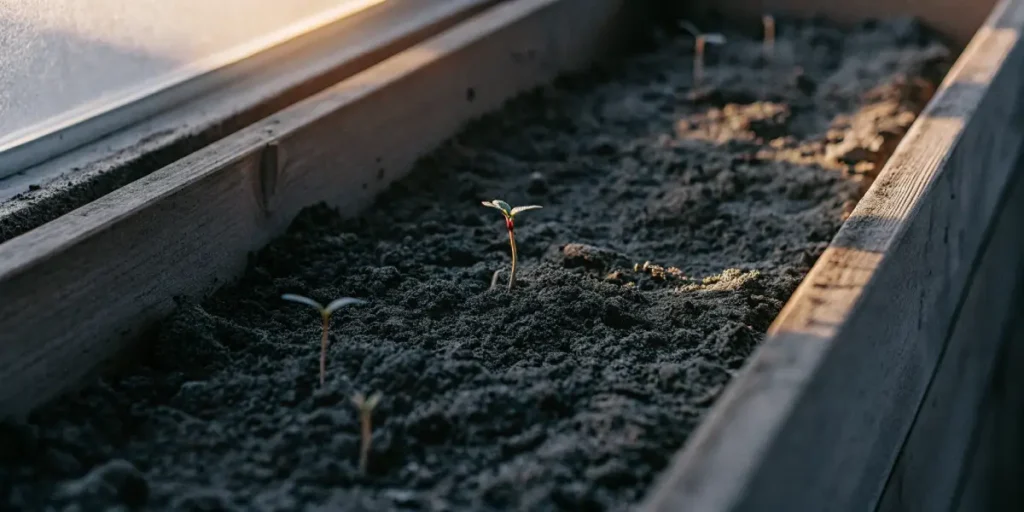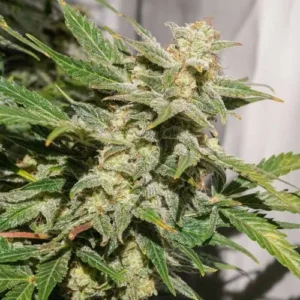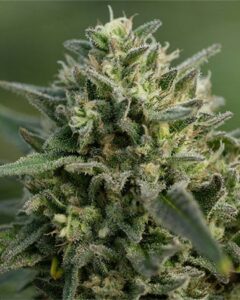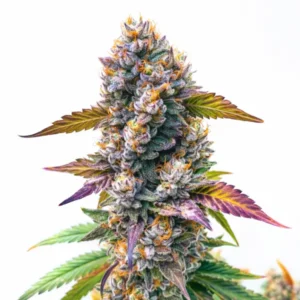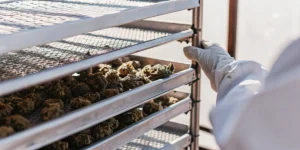When considering soil to grow cannabis, it’s essential to think about what makes up your soil. Cannabis plants thrive in soil that offers a balance of nutrients, drainage, and aeration. It might sound technical, but imagine it like preparing a perfect bed for your plants. A well-prepared soil can support robust plant growth and yield potent flowers.
The ideal soil texture for cannabis plants is typically a loamy mix. This type of soil is well-draining but retains enough moisture to keep roots hydrated. Consider it like a sponge; it holds water but doesn’t get soggy. This balance is crucial because cannabis roots need oxygen and excess water can suffocate them.
Recommended Strains
Joanne's CBD
|
|
CBD | 15% – 16% (Medium) |
|
|
Lineage | Session x Juanita la Lagrimosa |
|
|
Type | CBD Feminized |
|
|
Height | 5.25 ft | 1.6 m |
|
|
Yield | High |
|
|
Yield Indoor | 1.64 - 1.8 oz/ft² | 500 - 550 g/m² |
|
|
Yield Outdoor | 14.99 - 16.76 oz/plant | 425 - 475 g/plant |
|
|
Flowering Time | 7 - 8 weeks |
|
|
Phenotype | 25% Indica / 75% Sativa |
|
|
Effects | Focused, Uplifted |
|
|
Flavors | Candy, Fruity, Pepper |
Fast Eddy CBD Auto
|
|
CBD | 13% – 14% (Medium) |
|
|
Lineage | Cheese x Juanita la Lagrimosa x Ruderalis |
|
|
Type | CBD Autoflowering |
|
|
Height | 3.94 ft | 1.2 m |
|
|
Yield | Medium |
|
|
Yield Indoor | 1.31 - 1.47 oz/ft² | 400 - 450 g/m² |
|
|
Yield Outdoor | 2.82 - 4.59 oz/plant | 80 - 130 g/plant |
|
|
Life Cycle | 10 - 12 weeks |
|
|
Phenotype | 40% Indica / 50% Sativa / 10% Ruderalis |
|
|
Effects | Calming, Focused |
|
|
Flavors | Citrus, Earthy |
Choosing the right soil amendments can turn an average soil into a powerhouse of growth. Think of amendments like vitamins for your plants. They enhance the soil, providing extra nutrients and improving its structure. Some of the best soil amendments for cannabis include perlite for drainage, worm castings for nutrients, and bat guano for a natural nitrogen boost.
The Importance of Soil Nutrients for Cannabis Cultivation
Soil nutrients for cannabis cultivation are like the building blocks of plant health. These nutrients are divided into macronutrients and micronutrients. Macronutrients, such as nitrogen, phosphorus, and potassium, are needed in larger quantities. They support growth, flower production, and overall plant health.
Micronutrients, though required in smaller amounts, are equally important. Elements like calcium, magnesium, and iron play critical roles in plant metabolism and cell structure. Think of them as the fine-tuning components of your plant’s diet. Without them, plants can show signs of nutrient deficiencies, such as yellowing leaves or stunted growth.
Knowing the balance of soil nutrients for cannabis cultivation can help you tailor your feeding schedule. Regular soil tests can provide insights into which nutrients are present and which are lacking. By maintaining a balanced nutrient profile, you create an environment where cannabis plants can thrive and produce high-quality yields.
Furthermore, using organic fertilizers can enrich the soil to grow cannabis without the risk of chemical buildup. Organic options often provide a more sustainable approach, slowly releasing nutrients that are readily absorbed by the plant. This method not only enhances plant health but also contributes to the overall vitality of the soil.
Organic Soil Mix for Cannabis Growing
An organic soil mix for cannabis growing is a popular choice among cultivators seeking a natural approach. Organic mixes typically include compost, peat moss, and other natural materials. These ingredients work together to provide a nutrient-rich environment that supports healthy growth.
Creating your own organic mix can be rewarding. Start by combining equal parts of compost, coco coir, and perlite. Compost adds essential nutrients, coco coir improves water retention, and perlite enhances drainage. This mix offers a balanced environment that encourages strong root development.
For those not inclined to DIY, pre-made organic mixes are available. They often contain additional elements like kelp meal or bone meal, providing an even broader range of nutrients. Using an organic soil mix is like feeding your plants a holistic diet, ensuring they get everything they need in a natural way.
Incorporating the best soil amendments for cannabis into your organic mix can further enhance its quality. Ingredients such as rock dust or fish meal can add trace minerals that boost plant vitality. By choosing an organic soil mix for cannabis growing, you are adopting an eco-friendly approach that supports both your plants and the environment.
Balancing the pH Level for Cannabis Soil
The pH level for cannabis soil is crucial for nutrient uptake. Cannabis prefers a pH range between 6.0 and 7.0. If the soil is too acidic or too alkaline, plants can struggle to absorb nutrients, leading to poor growth and health issues.
Testing and adjusting soil pH might seem daunting, but it’s quite manageable. Home test kits can offer a quick snapshot of your soil’s pH. If adjustments are needed, lime can raise pH, while sulfur can lower it. Regular checks ensure your plants remain in the optimal range for nutrient absorption.
The pH level for cannabis soil not only affects nutrient uptake but also influences microbial activity. A balanced pH ensures beneficial microbes thrive, aiding in the breakdown of organic matter and nutrient availability. This symbiotic relationship between plants and microbes is essential for optimal growth.
Maintaining the pH level for cannabis soil can prevent common issues like nutrient lockout, where plants cannot access the nutrients even if they are present in the soil. By closely monitoring and adjusting your pH, you ensure that your plants have the best possible conditions to flourish and produce bountiful harvests.
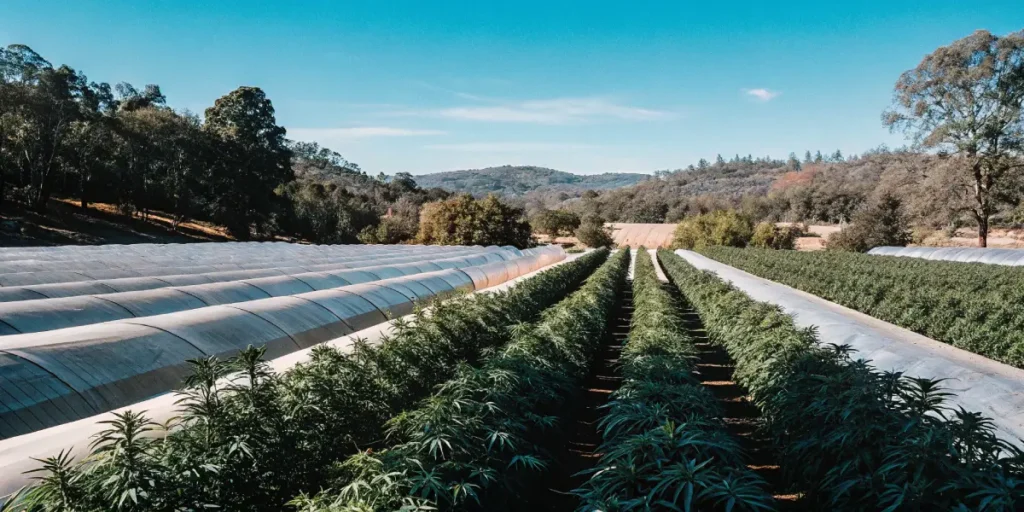
Practical Examples and Strains
Using real-life examples can help illustrate these concepts. Consider the cannabis strain Blue Dream, known for its resilience. This strain performs well in a well-draining soil with balanced nutrients. A loamy mix with added perlite and worm castings can provide the perfect environment.
Another strain, GG4, thrives in an organic soil mix. Combining compost, coco coir, and perlite can support its vigorous growth. This strain benefits from the natural nutrient boost provided by organic materials.
The popular strain OG Kush requires a particular focus on pH balance. Keeping the soil’s pH within the ideal range ensures this strain absorbs the nutrients it needs to develop its potent buds. Regular pH checks and adjustments can make a significant difference in its cultivation.
Modern hybrids such as Zoap Strain, known for their complex terpene profiles and balanced growth patterns, also benefit from carefully tailored soil conditions. Maintaining proper aeration, nutrient availability, and pH stability helps this strain express its full genetic potential.
For strains that demand specific growing conditions, adjusting the soil to grow cannabis can be crucial. Strains like Sour Diesel may require higher nitrogen levels during their vegetative stage, necessitating the addition of specific amendments to meet these needs. Tailoring your soil mix to match the requirements of different strains can enhance your success in cannabis cultivation.
Choosing the Best Soil Amendments for Cannabis
When looking for the best soil amendments for cannabis, consider what your soil lacks. If drainage is an issue, adding perlite can improve aeration. For nutrient boosts, consider worm castings or bat guano, both providing essential elements for growth.
Granular products like rock phosphate can offer a slow-release of phosphorus, supporting flowering. Meanwhile, materials like gypsum can improve clay-heavy soils, enhancing both structure and drainage. The right amendments can transform your soil, creating a thriving environment for your plants.
Choosing the best soil amendments for cannabis is about understanding your plant’s specific needs throughout its growth cycle. During flowering, for example, the addition of bone meal can provide a phosphorus boost crucial for bud development. By customizing your amendments, you can optimize growth at each stage.
Moreover, the best soil amendments for cannabis not only improve plant health but also contribute to the sustainability of your cultivation practices. Organic amendments are often renewable and less harmful to the environment, contributing to a more sustainable approach to cannabis growing. This consideration is vital for long-term soil health and productivity.
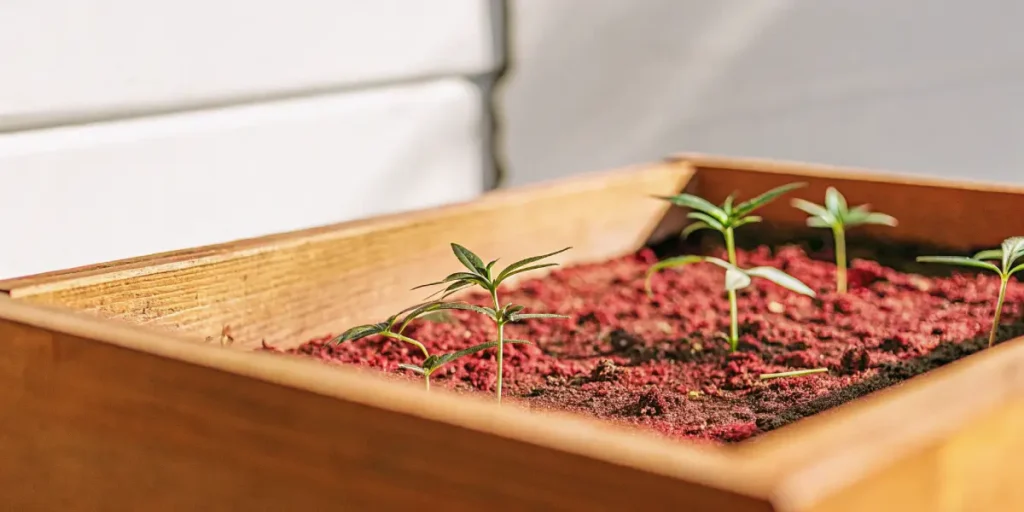
FAQs
What is the ideal soil texture for cannabis plants?
The ideal soil texture for cannabis plants is loamy. This type of soil combines sand, silt, and clay in a balanced way, offering excellent drainage and moisture retention. Loamy soil is light and airy, allowing roots to grow freely and access oxygen.
Loamy soil also holds nutrients well, ensuring that cannabis plants have access to the necessary elements for growth. Adding components like perlite and vermiculite can further enhance its properties, making it even more suitable for cannabis cultivation.
Knowing the ideal soil texture for cannabis plants can help you create the best environment for growth. A loamy texture supports root expansion and nutrient uptake, crucial for robust plant development. Achieving this balance in your soil to grow cannabis can significantly impact the success of your cultivation efforts.
Furthermore, the ideal soil texture for cannabis plants facilitates proper water management. It allows for efficient water drainage while retaining sufficient moisture for root absorption. This balance prevents issues like root rot and nutrient leaching, leading to healthier and more productive plants.
How do I adjust the pH level for cannabis soil?
Adjusting the pH level for cannabis soil involves testing and amending it as needed. Start by using a soil pH test kit to determine the current level. If the soil is too acidic, adding lime can raise the pH. For alkaline soils, sulfur can help lower the pH.
It’s important to make adjustments gradually and retest the soil after a week to see changes. Keeping the soil within the 6.0 to 7.0 pH range ensures optimal nutrient uptake, promoting healthy plant growth and development.
Knowing how to adjust the pH level for cannabis soil can prevent nutrient deficiencies and promote vigorous growth. Regular monitoring allows you to catch and correct imbalances before they affect plant health. By maintaining the correct pH, you set the stage for optimal nutrient absorption and plant vitality.
Incorporating natural pH adjusters can offer a more sustainable approach to managing the pH level for cannabis soil. Ingredients like wood ash can naturally raise pH, while organic materials like peat moss can help lower it. Choosing these options can reduce chemical dependency and support environmental health.
What are some organic soil mix options for cannabis growing?
Organic soil mix for cannabis growing includes ingredients like compost, coco coir, and perlite. This mix provides a natural, nutrient-rich environment that supports healthy plant development. Compost offers essential nutrients, while coco coir improves water retention.
Perlite enhances drainage, preventing waterlogging and root rot. Some growers add additional components like bone meal or kelp meal for extra nutrients. These mixes are available pre-made, or you can create your own tailored to your plants’ needs.
Exploring different organic soil mix options for cannabis growing can give you flexibility in cultivation. Each mix can be tailored to specific growth stages or plant needs, such as higher nitrogen mixes for vegetative growth or phosphorus-rich blends for flowering. This customization can enhance your plants’ performance.
An organic soil mix for cannabis growing not only supports plant health but also contributes to soil sustainability. Over time, organic materials decompose, enriching the soil to grow cannabis with beneficial microbes and nutrients. This cycle promotes a healthier growing environment and better long-term yields.
What soil nutrients are essential for cannabis cultivation?
Soil nutrients for cannabis cultivation include macronutrients like nitrogen, phosphorus, and potassium. These are essential for growth, flowering, and overall plant health. Macronutrients are required in larger amounts and form the backbone of plant nutrition.
Micronutrients, though needed in smaller quantities, are equally crucial. Elements like calcium, magnesium, and iron support various functions, including cell structure and metabolism. A balanced nutrient profile ensures robust and healthy cannabis plants.
Knowing the essential soil nutrients for cannabis cultivation can guide your nutrient management practices. Regular soil tests help identify deficiencies, allowing you to tailor your feeding regimen. This proactive approach ensures that your plants receive the right balance of nutrients for optimal growth.
Incorporating organic fertilizers can provide a more sustainable way to deliver essential soil nutrients for cannabis cultivation. Organic options often release nutrients slowly, providing a consistent supply over time. This method not only supports plant health but also enhances the soil’s overall fertility and productivity.
Can I reuse soil for growing cannabis?
Reusing soil for growing cannabis is possible with some preparation. First, remove old plant matter and roots. Then, refresh the soil by adding new organic matter and nutrients. Compost, worm castings, and fresh amendments can replenish the soil.
Before reusing, test the soil’s pH and nutrient levels. Adjust as necessary to ensure it meets the requirements for cannabis cultivation. Properly rejuvenated soil can continue to provide a supportive environment for new cannabis growth.
When reusing soil for growing cannabis, consider incorporating crop rotation or cover crops to naturally restore nutrients. These practices can improve soil structure and nutrient availability, reducing the need for chemical fertilizers. This approach fosters a sustainable and environmentally friendly cultivation practice.
Rejuvenating and reusing soil to grow cannabis also offers economic benefits. By extending the life of your soil, you reduce the costs associated with purchasing new soil and amendments. This practice not only saves money but also minimizes waste, promoting a more sustainable cultivation system.

